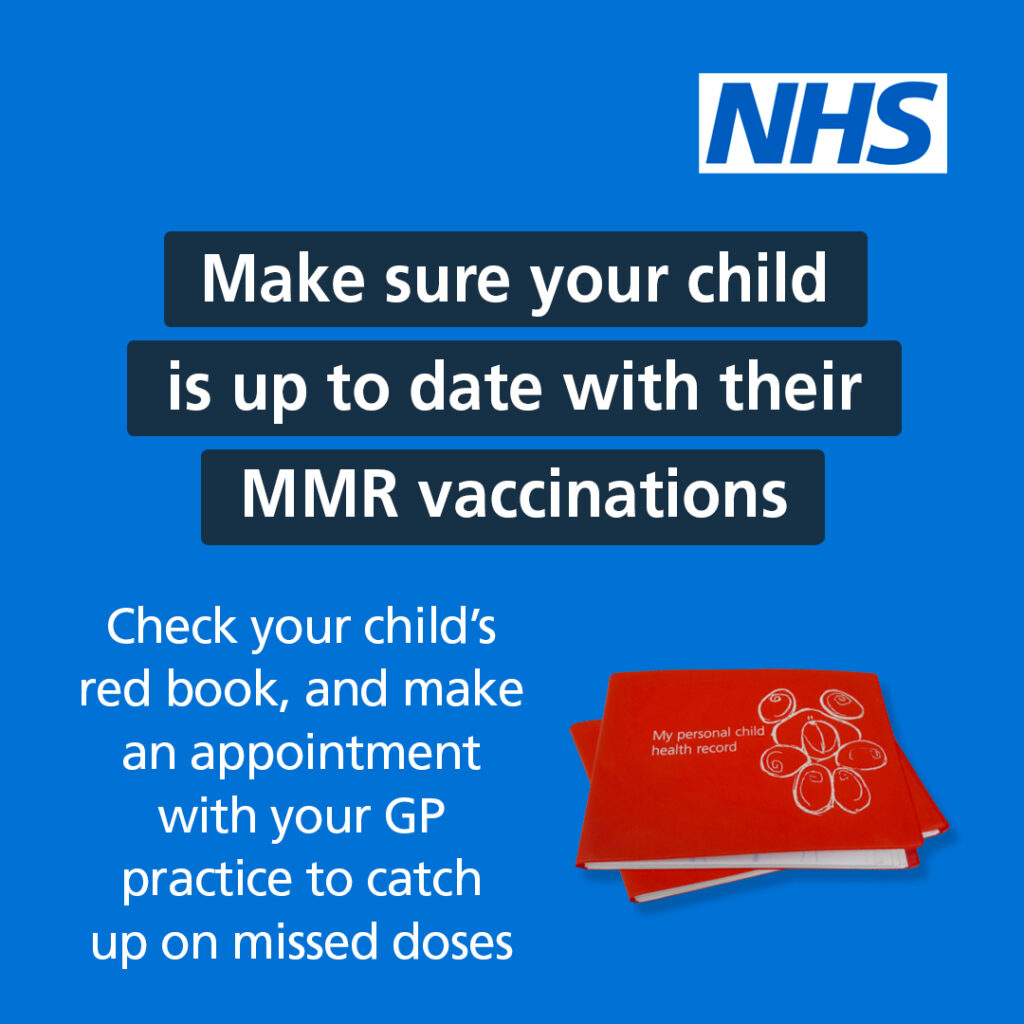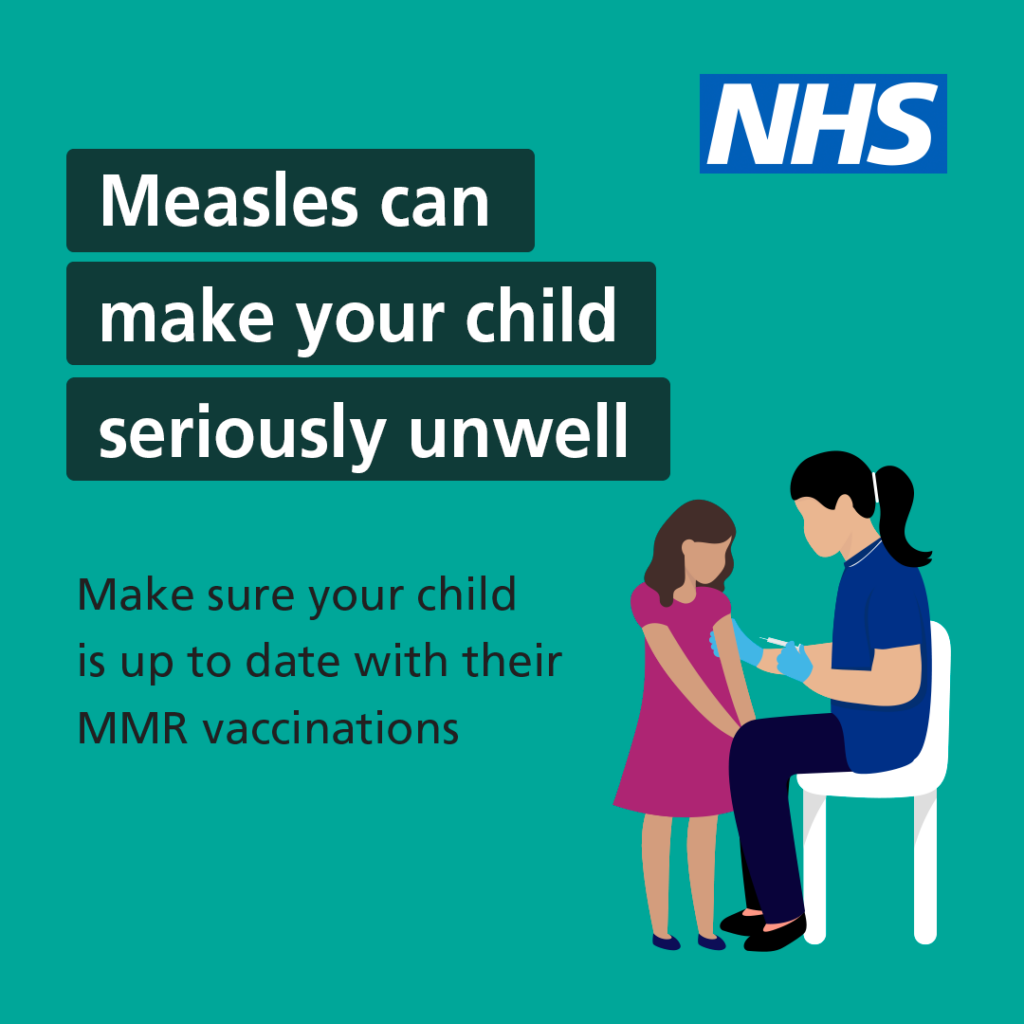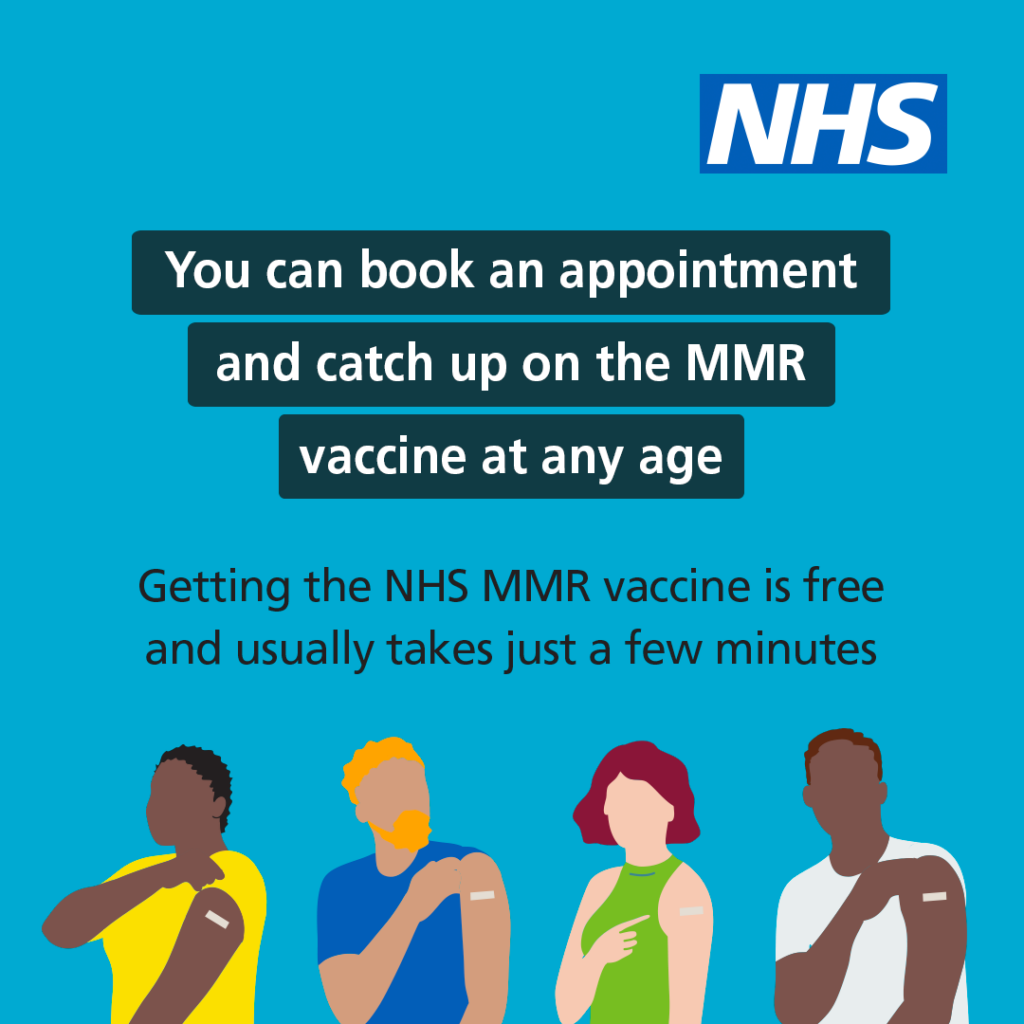Measles is a highly infectious condition that spreads very easily between unvaccinated people and can cause serious problems. Having the MMR vaccine is the best way to prevent it.
Measles usually starts with cold-like symptoms, followed by a rash a few days later. Some people may also get small spots in their mouth. For more information about measles symptoms and what to look out for, visit the NHS website.



What to do if you suspect you or your child has measles
If you suspect you or your child has measles, mumps or rubella, please do not attend any healthcare setting, including your GP surgery or a hospital. Children should not go to school. It is highly contagious, and you risk passing it onto others.
Please call NHS 111 or your GP surgery to be provided with further health advice.
Good hygiene is important like regularly washing your hands, using tissues to catch coughs and sneezes and throwing used tissues in the bin.
Visit the NHS website for official information and advice.
MMR vaccine
Two doses of the Measles, Mumps and Rubella (MMR) vaccine provide the best protection against infection. This is offered free on the NHS.
What to do if you’re unsure if your child has received the MMR vaccines
You can find a child’s vaccination record if they have a Red Book with their medical information.
You can contact the Community and School Age Immunisation Service, details below:
Norfolk: 0300 555 5055 (choose option 2) or email: hct.csaisnorfolk@nhs.net
Suffolk: 0300 555 5055 (choose option 3) or email: hct.csaissuffolk@nhs.net
You can contact the GP practice your child is registered at.
Your GP practice should be able to offer you a vaccine if you are unvaccinated. A member of the GP practice team may direct you to book your child’s vaccine through a local NHS clinic.
How to check if you’ve had your MMR vaccines if you are an adult
Adults will need to check their vaccination record with their GP Practice.
Measles resources
The ICB has produced a MMR vaccine poster and MMR vaccine social media graphic.
Just One Norfolk have a dedicated webpage about measles.
The Department for Education has published a blog aimed at parents and carers: ‘What to do if you think your child has measles and when to keep them off school’.
The video of Consultant Epidemiologist at UKHSA, Dr Colin Campbell below, explains who can have the MMR vaccine and why the World Health Organization (WHO) has set an MMR vaccination target of 95% of the population.
